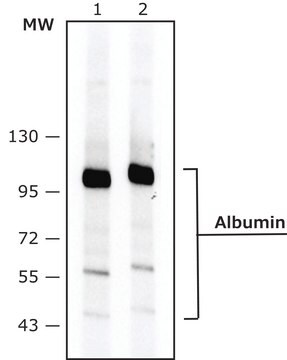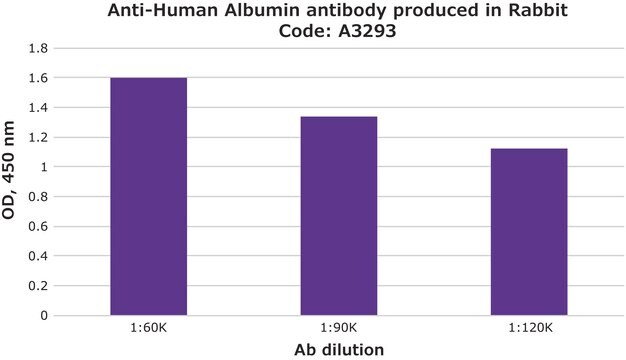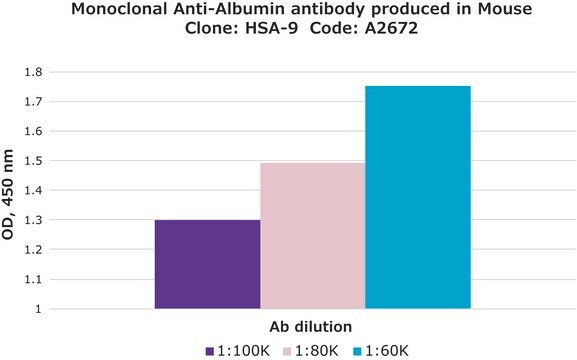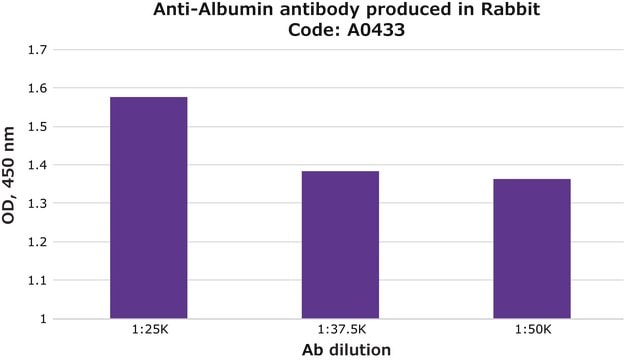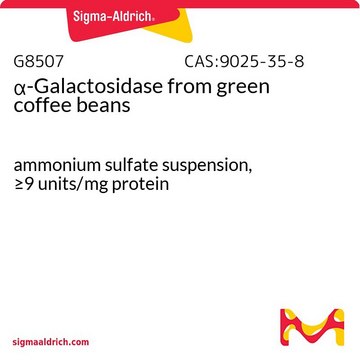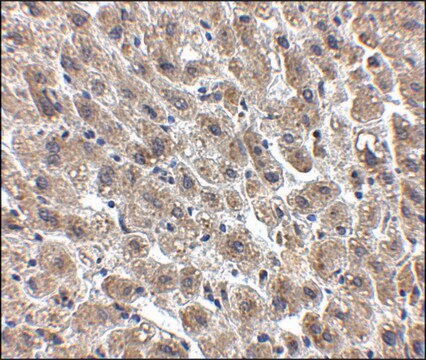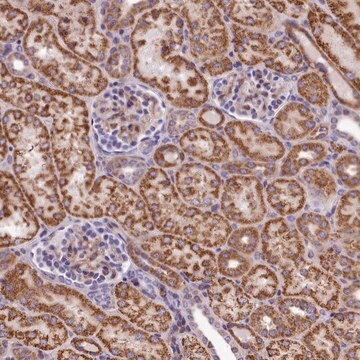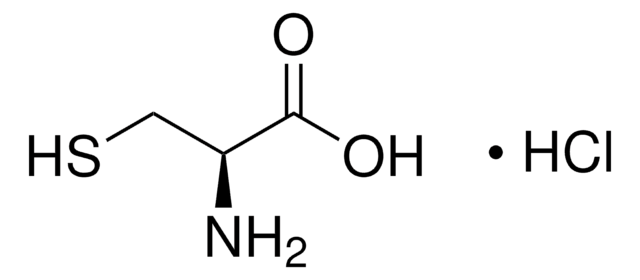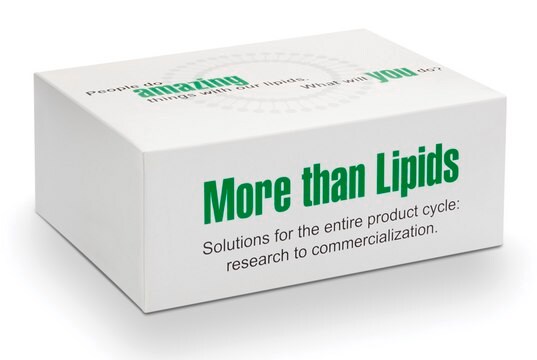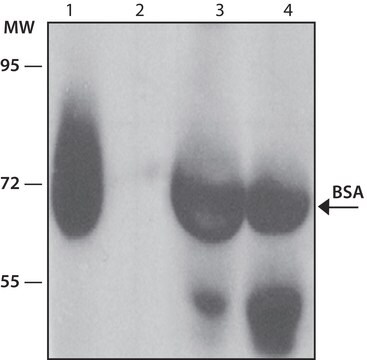A1151
Anti-Albumin antibody produced in goat
fractionated antiserum, lyophilized
Sinónimos:
Albumin Detection Antibody, Anti-Albumin, Goat Anti-Albumin
About This Item
Productos recomendados
biological source
goat
Quality Level
recombinant
expressed in goat
antibody form
fractionated antiserum
antibody product type
primary antibodies
clone
polyclonal
form
lyophilized
mol wt
antigen 65 kDa
species reactivity
human
packaging
vial of 2 mL lyophilized antiserum
technique(s)
immunocytochemistry: suitable
immunohistochemistry: suitable
UniProt accession no.
storage temp.
2-8°C
Gene Information
human ... ALB(213)
General description
Immunogen
Application
Physical form
Disclaimer
¿No encuentra el producto adecuado?
Pruebe nuestro Herramienta de selección de productos.
Storage Class
11 - Combustible Solids
wgk_germany
WGK 3
flash_point_f
Not applicable
flash_point_c
Not applicable
ppe
Eyeshields, Gloves, type N95 (US)
Certificados de análisis (COA)
Busque Certificados de análisis (COA) introduciendo el número de lote del producto. Los números de lote se encuentran en la etiqueta del producto después de las palabras «Lot» o «Batch»
¿Ya tiene este producto?
Encuentre la documentación para los productos que ha comprado recientemente en la Biblioteca de documentos.
Nuestro equipo de científicos tiene experiencia en todas las áreas de investigación: Ciencias de la vida, Ciencia de los materiales, Síntesis química, Cromatografía, Analítica y muchas otras.
Póngase en contacto con el Servicio técnico